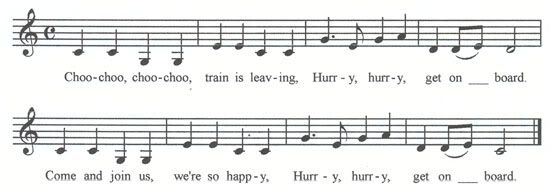

|
Korean Job Discussion Forums
"The Internet's Meeting Place for ESL/EFL Teachers from Around the World!"
|
| View previous topic :: View next topic |
| Author |
Message |
CoolTeach

Joined: 19 Apr 2006
Location: Back in the USSR
|
 Posted: Thu Jun 15, 2006 12:32 am Post subject: Class Set-up Posted: Thu Jun 15, 2006 12:32 am Post subject: Class Set-up |
 |
|
gfd
Last edited by CoolTeach on Fri Jul 28, 2006 6:29 am; edited 1 time in total |
|
| Back to top |
|
 |
rickhorton44

Joined: 10 Mar 2003
Location: Korea
|
 Posted: Thu Jun 15, 2006 10:35 pm Post subject: how many students? Posted: Thu Jun 15, 2006 10:35 pm Post subject: how many students? |
 |
|
i'm guessing you have twelve students since you have twelve chairs. if that's the case then just make a horseshoe with the four tables with the students on the outside facing you.
I also found using thier names also help with control. If you can't remember them, have them make name cards or name plates for thier desks.
It's also helpful to use peer pressure to keep control. Punish all the students while the bad one watches. The good students will put him/her in line quickly.
I think most importantly is to have them all facing you, not with thier backs to you. It's the old saying "out of sight, out of mind"
As far as using only English. Spend a lot of time teaching them proper classroom language. How do you say &*%$ in English. Sit down. Stand up. Be quiet. Work with a partner. Work in groups. Take out a pencil. Come here. Write. Read. Listen. Repeat. etc.......
Just very basic classroom command. Spend atleast two full lessons on this. Make various activities to re-enforce these phrases so that they have no excuse for using Korean. A good one is Simon Says. Younger and older kids seem to enjoy the competition. Just practice them till they know exactly what they mean, and spend a few minutes everyday reviewing them till they are set in stone.
Good luck. |
|
| Back to top |
|
 |
tomato

Joined: 31 Jan 2003
Location: I get so little foreign language experience, I must be in Koreatown, Los Angeles.
|
 Posted: Fri Jun 16, 2006 5:10 am Post subject: Posted: Fri Jun 16, 2006 5:10 am Post subject: |
 |
|
Here are some of my favorite techniques:
--When a student speaks to you in Korean, pretend not to understand.
Sometimes I don't HAVE to pretend. But when I do, I say something like, "I'm sorry, but I don't know what a 연필 is."
The child may say, "Pencil."
Then I say, "Fine. Can you remember to say 'pencil' next time?"
Or the child may not answer, but someone else may say, "Pencil."
Then I say, "Fine. Now can you remember to say 'pencil' next time?"
Or nobody else might answer.
Then I would take out my electronic dictionary and say, "Then I'll look it up then. And I'd BETTER not find out that you're cussing me out!"
Most of the kids are unfamiliar with electronic dictionaries, so this creates quite an attraction. When I find that 연필 means "pencil," I show it to the class.
Then I say, "Can you remember to say 'pencil' next time?"
--In classes where hangukmalling is at its worst, I keep a list of hangukmallers (those who speak Korean in class). Once every fifteen minutes or so, I review the list and look for names of students whose names are not on that list. Then I lead the class in a round of:
One, two, three four,
Who are we for?
Eric, Eric, Eric!
--For students who last through the entire class without hangukmalling, dismiss those students five minutes early. Spend those last five minutes on the most boring activity you can think of. The most boring activity I can think of is reviewing the textbook.
--Bring in a handful of quick and easy picture books--like the books published by Creative Teaching Press. At about half past (or at about the hour if your class starts on the half-hour), toss a few of those books to each student who has not hangukmalled. Each of those students gets to choose one book.
--If a student speaks to another student in English, reinforce that student like crazy.
I tell you all about it at:
http://www.eslcafe.com/forums/korea/viewtopic.php?t=39243&highlight=)
Here are some old threads on similar topics:
http://www.eslcafe.com/forums/korea/viewtopic.php?t=57899&highlight=
http://www.eslcafe.com/forums/korea/viewtopic.php?t=1274&highlight=
http://www.eslcafe.com/forums/korea/viewtopic.php?t=27456&highlight=
http://www.eslcafe.com/forums/korea/viewtopic.php?t=25995&highlight=
http://www.eslcafe.com/forums/korea/viewtopic.php?t=17013&highlight=
http://www.eslcafe.com/forums/korea/viewtopic.php?t=4351&highlight= |
|
| Back to top |
|
 |
CoolTeach

Joined: 19 Apr 2006
Location: Back in the USSR
|
 Posted: Fri Jun 16, 2006 2:59 pm Post subject: Thanks a lot!!! Posted: Fri Jun 16, 2006 2:59 pm Post subject: Thanks a lot!!! |
 |
|
gfd
Last edited by CoolTeach on Fri Jul 28, 2006 6:28 am; edited 1 time in total |
|
| Back to top |
|
 |
tomato

Joined: 31 Jan 2003
Location: I get so little foreign language experience, I must be in Koreatown, Los Angeles.
|
 Posted: Sat Jun 17, 2006 3:15 am Post subject: Re: Thanks a lot!!! Posted: Sat Jun 17, 2006 3:15 am Post subject: Re: Thanks a lot!!! |
 |
|
Double-posted.
Sorry!
Last edited by tomato on Sat Jun 17, 2006 10:08 am; edited 1 time in total |
|
| Back to top |
|
 |
tomato

Joined: 31 Jan 2003
Location: I get so little foreign language experience, I must be in Koreatown, Los Angeles.
|
 Posted: Sat Jun 17, 2006 4:21 am Post subject: Re: Thanks a lot!!! Posted: Sat Jun 17, 2006 4:21 am Post subject: Re: Thanks a lot!!! |
 |
|
| CoolTeach wrote: |
| Unfortunately, these 1 and second graders don't even know the ABC's. I have a very small classroom, so it gets pretty crazy. |
I once ordered a boxload of inexpensive ABC books from Amazon.
Sometimes I set aside a class for learning about a particular letter.
I give each child a different ABC book and instruct the class to "find something which begins with the letter A."
If a child doesn't know that A is at the front of the book, that child's neighbor usually helps.
| Quote: |
| Honestly, all I think most of these kids hear when I am talking is "wa wa wa wa wa. " |
I have been concerned over the same thing.
Sometimes, when the children mimic me, they say, "wa wa wa wa wa."
Through the years, I have gathered a collection of routines and repeating patterns.
When a student is absent, we sing a sad song which goes, "Nathan isn't here, Nathan isn't here, [cry]!"
After each child volunteers, we all slap our knees and chant, "Thank you, Sally. Thank you, Sally."
When a child hangukmalls, I lead the class in a chorus of "English yes, Korean no!"
When it is time to read a picture book, I start with my translation of a Korean picture book:

What time is it now?
Is it time to dance?
Is it time to swim?
Is it time to sing?
Is it time to swing?
No, it's time to read a book.
Then I read another picture book, usually one with repeated patterns in the text.
For example, I See Colors, published by Creative Teaching Press, is a favorite:
"I see red, I see blue, I see yellow, I see green, I see orange, I see brown, I see colors all around."
After I finish such a book, I choose a student by playing "Eeny meeny miney mo."
Then I read the book again, substituting the student's name.
At the end of class, I lead the children down the stairs singing:

Since this is a translation of a Korean song which is familiar to them,
it is easy for them to understand.
Of course, it is important to balance the familiar with the unfamiliar.
In one of my older classes, the students complained that I made too much repetition, so the director kicked me out of that class and set himself up as the teacher.
| Quote: |
| " The art of governing lies not in the exertion of one's own strength, but rather values the excellence of the empire." |
I like your signature.
It shows you're on the right track.
We have seen too many teachers who try to govern by exerting their own strength.
I hope you value the excellence of your empire.
Last edited by tomato on Sat Jun 17, 2006 10:07 am; edited 1 time in total |
|
| Back to top |
|
 |
CoolTeach

Joined: 19 Apr 2006
Location: Back in the USSR
|
 Posted: Sat Jun 17, 2006 4:45 am Post subject: Posted: Sat Jun 17, 2006 4:45 am Post subject: |
 |
|
| gfd |
|
| Back to top |
|
 |
|
|
You cannot post new topics in this forum
You cannot reply to topics in this forum
You cannot edit your posts in this forum
You cannot delete your posts in this forum
You cannot vote in polls in this forum
|
|

